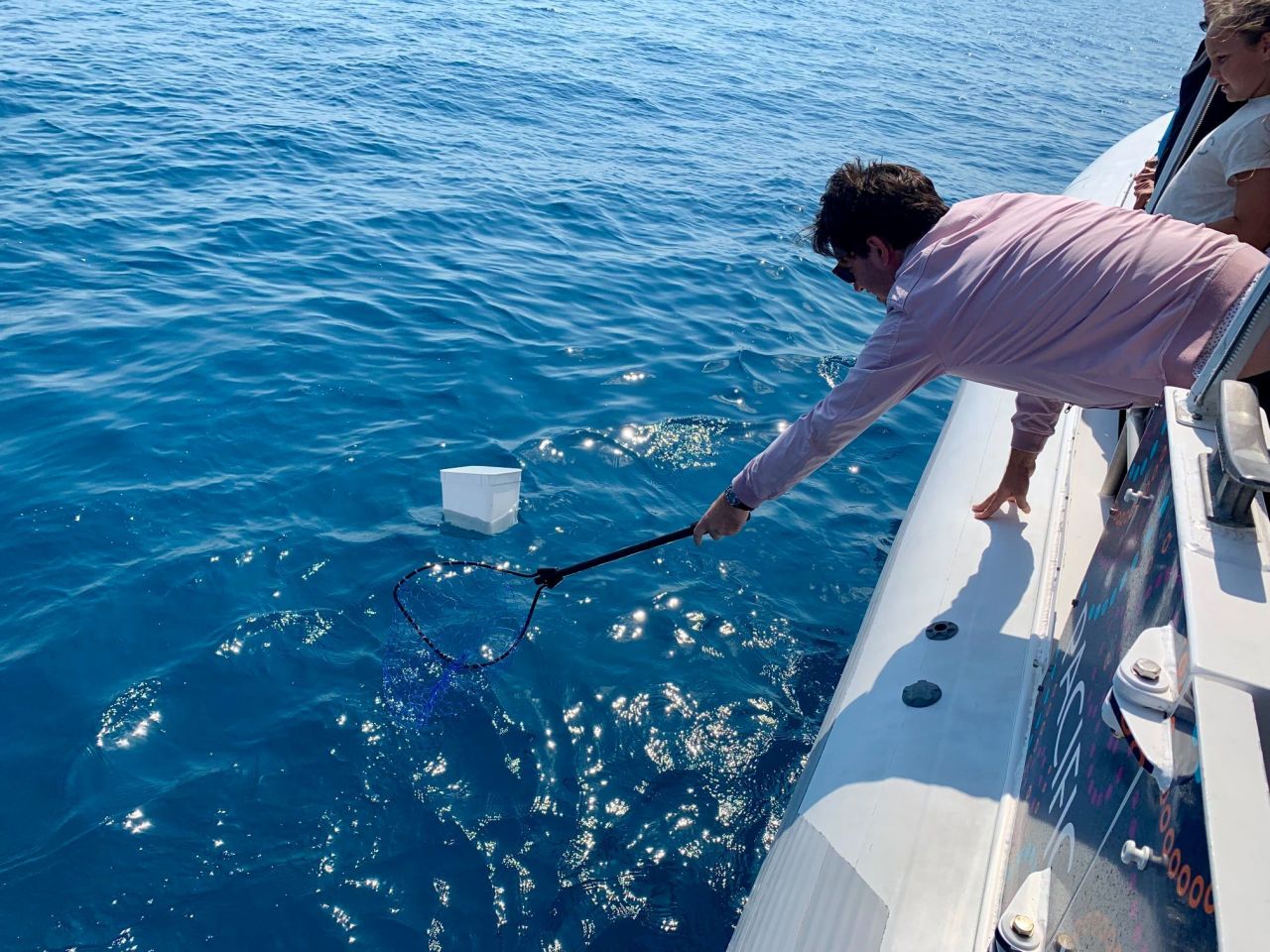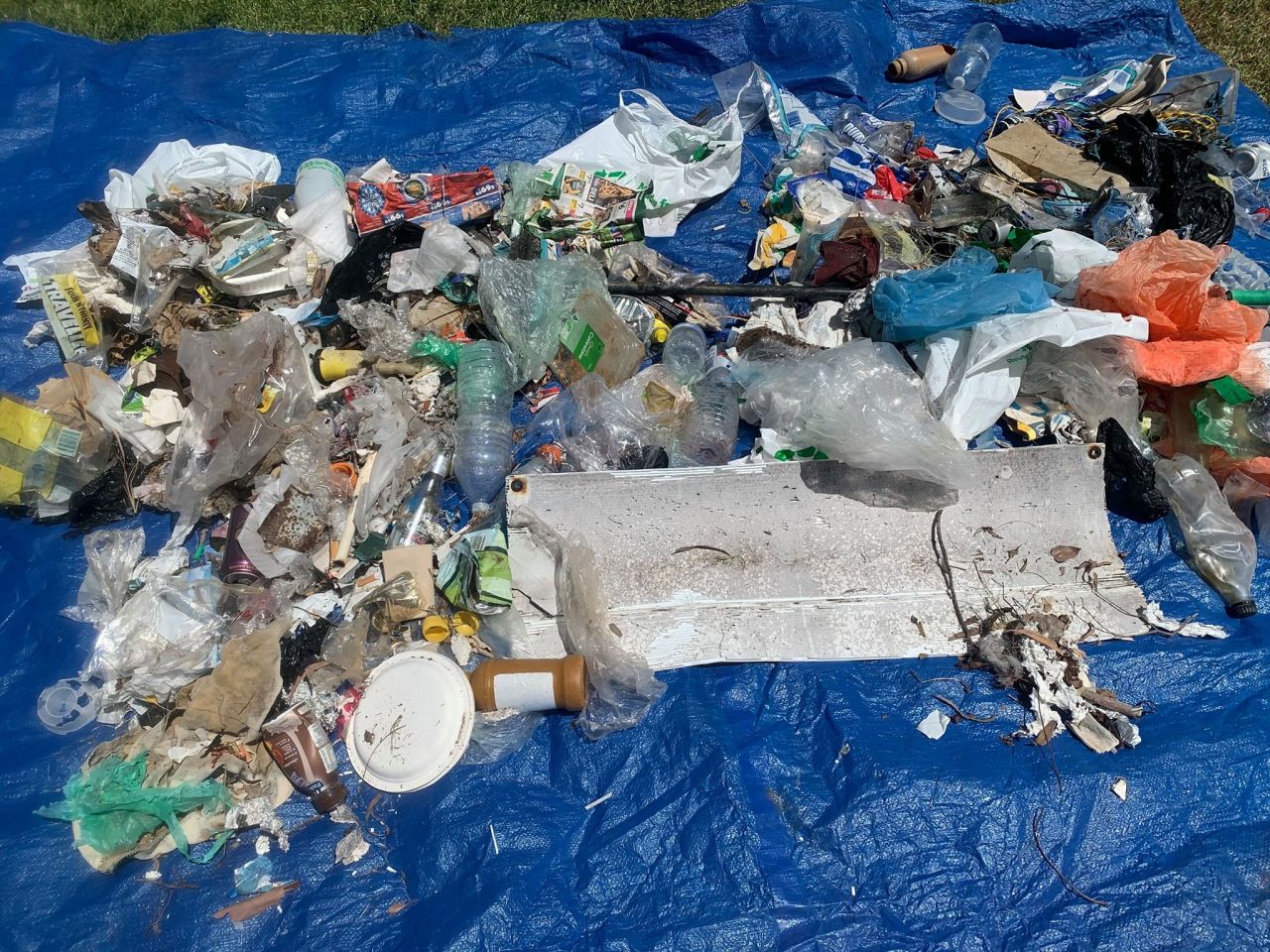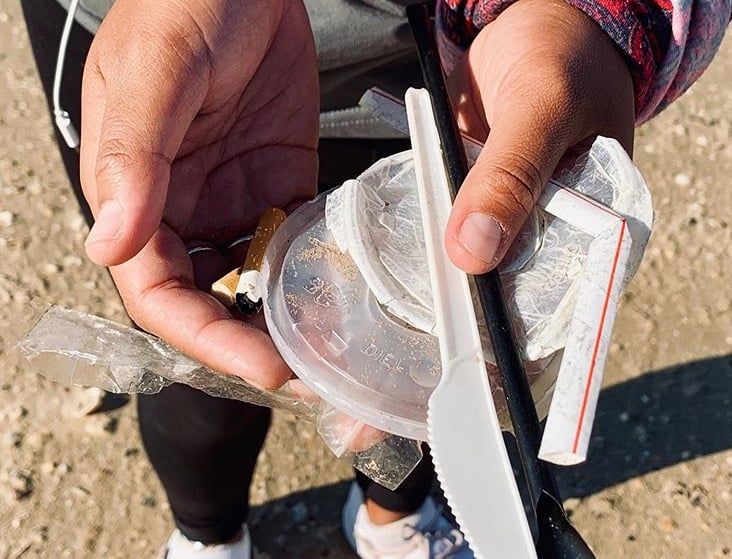A recent study of marine life found that flexible plastics are responsible for the largest proportion of marine life deaths. In the case of whales, once ingested the plastics can accumulate in the stomach, the mass eventually becoming so big that it obstructs the bowels and the whale starves to death. Sometimes, whales become entangled in fishing nets and rope and die that way.
“Plastics are by far the biggest problem, but all debris is a hazard for marine life,” explains Andrew Ellis, Director of Pacific Whale Foundation Eco-Adventures Australia. “We are now trying to understand what exactly ends up in the ocean, and how, so we can tailor better solutions to combat the problem.”
 A guest helping clean up our oceans. Image: Pacific Whale Foundation Eco-Adventures Australia
A guest helping clean up our oceans. Image: Pacific Whale Foundation Eco-Adventures Australia
Pacific Whale Foundation, a social enterprise and parent company of Pacific Whale Foundation Eco-Adventures Australia, has been running coastal marine clean-ups for many years in Hervey Bay, but since 2019 the aim has been to also record the types of debris found on the Australian Marine Debris Initiative (AMDI) Database run by Tangaroa Blue.
“The idea is to establish a comprehensive database that covers marine debris from right around Australia,” Andrew explains. “Coastal and beach clean-ups were about removing rubbish and that is still the objective, but we are now trying to understand where the rubbish is coming from. If we can identify the sources and types, we can make suggestions on how to reduce it.”
 Large collection of rubbish. Image: Pacific Whale Foundation Eco-Adventures Australia
Large collection of rubbish. Image: Pacific Whale Foundation Eco-Adventures Australia
Education through appreciation is the catch phrase while on board any Pacific Whale Foundation Eco-Adventures Australia whale watching tour, and Andrew explains that there is no better time to inspire guests to further help our marine environment than while they are in awe of the Hervey Bay marine life.
 Cleaning up rubbish. Image: Pacific Whale Foundation Eco-Adventures Australia
Cleaning up rubbish. Image: Pacific Whale Foundation Eco-Adventures Australia
“After seeing these magnificent creatures in their natural environment our guests often want to learn how they can help. If we all make small changes – like reduce our use of single-use plastics and make sure that all of our waste is disposed of effectively – the ocean will be a much better place,” Andrew says.
“Many of our guests are inspired to further their efforts through their own beach and coastal clean-ups, and we encourage them to log any debris collected into the AMDI database through Tangaroa Blue. Every bit of help is a step towards making a difference.”
Ultimate Hervey Bay Whale Watching
Explore the world’s first declared Whale Heritage Site at Hervey Bay, known for coming alive with thousands of Humpback Whales between July and October. This region is known for having some of the most active and inquisitive whales found anywhere across the globe, with breaches, whale songs and muggings common practice.

